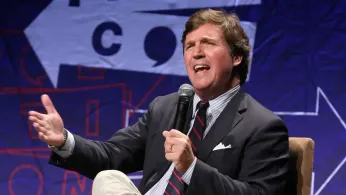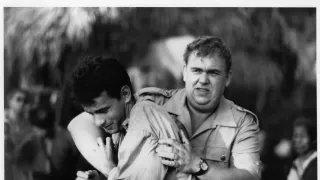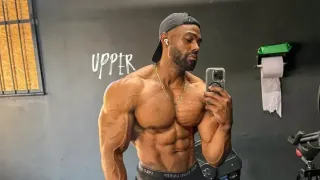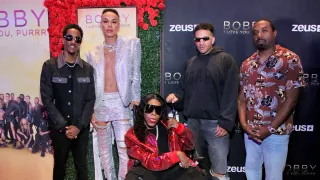
5 hours ago
Tucker Carlson Calls Pete Buttigieg “Fake Gay” in Podcast Outburst, Prompting LGBTQ+ Community Response
READ TIME: 3 MIN.
Conservative media figure Tucker Carlson sparked widespread backlash this week after referring to U.S. Secretary of Transportation Pete Buttigieg as “fake gay” during a segment on his podcast, further demanding that Buttigieg “answer questions about gay sex” . Carlson’s comments, delivered with characteristic provocation, have been widely condemned by LGBTQ+ organizations and allies as not only factually baseless but also a perpetuation of dangerous stereotypes and invasions of privacy.
Pete Buttigieg, the first openly gay person confirmed to a Cabinet position in U.S. history, has consistently spoken openly about his identity and family, including his marriage to Chasten Buttigieg and their journey as parents . Buttigieg’s visibility has been lauded by many as a significant step for LGBTQ+ representation in American politics. His candidacy for president in 2020, subsequent Cabinet appointment, and continued advocacy have made him a prominent figure for LGBTQ+ Americans seeking authentic voices in government.
Carlson’s statements echo a series of attacks he has made over the years against Buttigieg’s identity, questioning the authenticity of his sexuality and, by implication, his legitimacy as a representative of LGBTQ+ Americans . During his recent podcast, Carlson claimed that Buttigieg is “not really gay” and asserted that he should be forced to answer intrusive questions about his private life. These remarks have been widely denounced as homophobic and inconsistent with respectful public debate.
LGBTQ+ advocacy organizations, including the Human Rights Campaign and GLAAD, have responded by reaffirming the importance of self-identification and privacy. Human Rights Campaign President Kelley Robinson stated, “No one should have their identity or relationship authenticity questioned as a matter of public spectacle. These attacks are designed to demean and delegitimize LGBTQ+ leaders and must be unequivocally rejected” .
Numerous political leaders, activists, and LGBTQ+ organizations have condemned Carlson’s remarks as both offensive and dangerous. Chasten Buttigieg, Pete Buttigieg’s husband, issued a statement on social media, noting, “Our family is not defined by the hate and cynicism of others. We are proud, visible, and here to serve our country” .
Democratic lawmakers and LGBTQ+ advocates have highlighted the broader pattern of right-wing attacks on LGBTQ+ public figures, particularly those who break new ground in government and policy. Representative Ritchie Torres (D-NY), himself openly gay, called Carlson’s comments “an example of why representation matters—because when LGBTQ+ people are visible, they become targets for those who want to erase us. But we will not back down” .
Experts in LGBTQ+ media have warned that such rhetoric, when amplified by influential media figures, can have chilling effects on representation and public safety. Dr. Sarah McBride, an LGBTQ+ policy analyst, explained, “These attacks are not just about one person—they signal to LGBTQ+ youth and aspiring leaders that their identities will be weaponized against them in the public sphere.” Advocacy groups urge media outlets to avoid repeating or normalizing such claims and to contextualize them as part of a long-standing pattern of anti-LGBTQ+ rhetoric .
In the wake of the controversy, calls have intensified for greater accountability in the media and for a renewed commitment to respectful discourse. LGBTQ+ organizations are urging listeners, viewers, and sponsors to hold platforms and personalities accountable for perpetuating harmful stereotypes. Many are also calling for allies and political leaders to vocally support LGBTQ+ public officials and challenge attempts to undermine their credibility through personal attacks.
Buttigieg himself, while not directly addressing Carlson’s latest remarks, has previously stated, “My hope is that by being out and visible, I can show young people that your identity does not have to be an obstacle to public service. Authenticity is our strength, not a weakness” .






